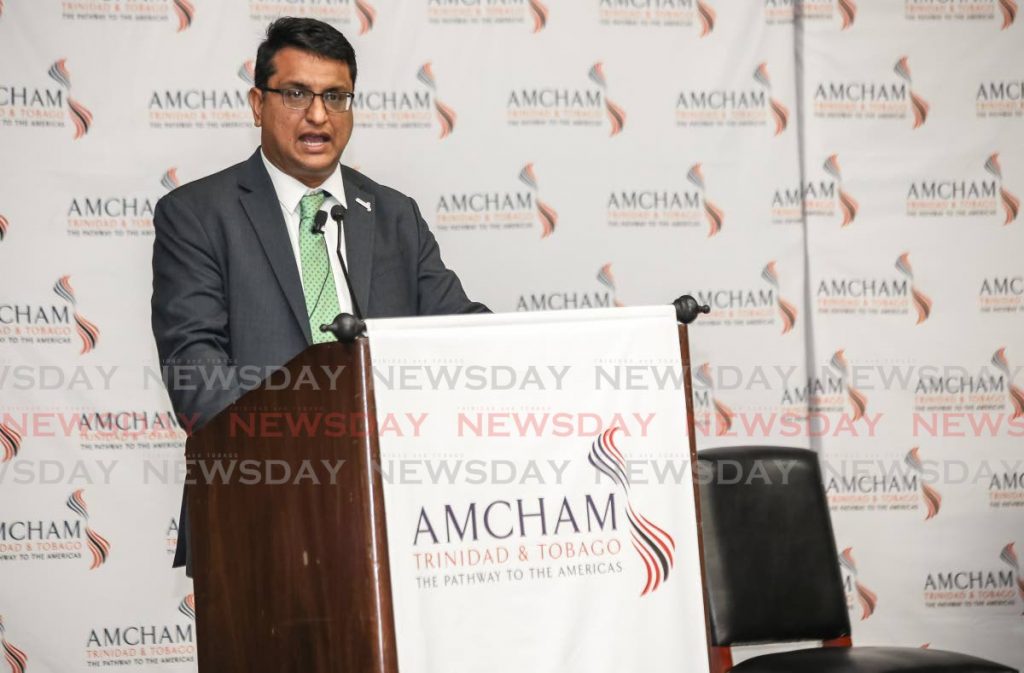Big businesses hit delay in implementing Procurement Act: PROCLAIM LAW NOW

LEADING business stakeholders – the American Chamber of Commerce (AmchamTT), TT Chamber of Industry and Commerce, TT Manufacturers Association and the TT Transparency Institute – are of the view the Public Procurement and Disposal of Public Property Act, 2015, can be proclaimed and fully implemented before the reading of the 2023 national budget.
On June 22, Attorney General Reginald Armour, SC, admitted more work was needed before the Procurement Act can be proclaimed. He cited concerns by the Judiciary and the Office of the Procurement Regulator (OPR).
His admission was evoked strong reactions from various bodies while procurement regulator Moonilal Lalchan, while agreeing that many public bodies were not yet compliant with the legislation, was of the view it should be proclaimed.
On Sunday, Amcham, the TT Chamber, the TTMA and the Transparency Institute, in a joint statement, all agreed the legislation could be proclaimed and implemented in the coming months.
The business stakeholders admitted to being concerned with the latest position, saying also it was, “utterly disappointed that the lack of ‘readiness of state enterprises, over which the Government has ultimate control, may further delay the full implementation of the act.
“This issue must be addressed as a matter of priority to ensure it is not a limitation in the implementation of the act,” the group stressed.
“We call on the Government to give a definite time line for the act’s implementation and commit the necessary time and resources to ensure this is met.
“Having been active participants in this process for the past decade in collaboration with several other groups under the banner of the private sector civil society organisation, we support the view of the JCC.
“The full implementation of this act is a step toward strengthening the rule of law in Trinidad and Tobago and increasing investor confidence. It will also demonstrate the Government’s commitment to transparency and accountability in the utilisation of public resources.”
However, the business stakeholders said they were heartened by Armour’s assurances of Government’s commitment to the full implementation of the legislation when he said, “The Government has placed its highest priority and is fully committed to take the final steps to fully proclaim and to bring into operation this important law.”
When he spoke to the Parliament and later addressed the issue at his first media conference as AG, Armour said soon after taking office he had consulted the OPR and Judiciary.
The OPR, he related, said some public bodies had started to get ready for compliance with the act, but “significant work” still remained to establish the required system and processes.
Armour said the Judiciary identified “critical issues relative to the operationalisation of the legislation in its current form.”
The Judiciary was concerned about a lack of separation of powers, the OPR’s wide authority, insufficient assurance of due process, concerns of abuse in challenges to a public body’s procurement activity, the chance of the act being used to hinder the functioning of law courts, the under staffing of the Judiciary’s procurement unit, fears of a leap in public-law litigation, fears of an unmanageable workload for the Judiciary, and an extensive impact on the Judiciary’s operations.
The Judiciary declined to provide a copy of its comment when asked on Friday.
One day after Armour’s statements, the JCC accused the Government of making excuses and not being committed to enacting procurement legislation.
“The AG provided only excuses for the non-operationalisation of the Office of the Procurement Regulation (OPR) with no stated deadlines for addressing these concerns that he listed via (an) 11th-hour consultation with the Judiciary.”
The JCC said the AG had sought to placate the public by saying the Prime Minister “has been driving the work of the Cabinet” on many amendments to this legislation to refine it and make it workable.
“The JCC finds this obvious spin intolerable and tantamount to an abdication of duty, particularly after repeated commitments by this administration to have the act fully implemented prior to and since coming into Government in 2015.”
The council said the Government’s inability to implement this languishing legislation was “a direct reflection of their lack of commitment to transparency, accountability and value for money” when spending public funds.
It said the Government’s latest position was an indictment on the Government’s performance in public office.
“We therefore call again on the Prime Minister to address these matters that are allegedly keeping back the full proclamation of the legislation before the next budget is read in Parliament.”
The JCC also said, “It is our considered opinion that if various state agencies, including the Judiciary, cannot get their house in order for responsible procurement practice, after all the hard work done by the OPR since 2017, then these agencies should not be spending public money.”
The council noted that compliance only becomes mandatory after the legislation is fully implemented.


Comments
"Big businesses hit delay in implementing Procurement Act: PROCLAIM LAW NOW"